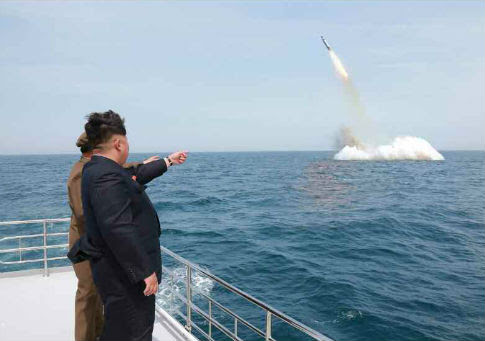John Schindler's very strong critique of the "OSS myth." Regardless of whether the truth lies closer to the myth or to Schindler's busting of the myth there is still a lot to be learned from the good and bad of the OSS. While I agree we should not base strategy and operations on romantic notions of the OSS there are many aspects that do have applicability today but this cautionary conclusion is very much worth pondering. And I still think there is more right than wrong in Ignatius' OpEd. But I also do not believe that the use of air power and SOF in Iraq and Syria are the silver bullets that can achieve success along that many in the administration would like them to be.
There are aspects of the OSS legacy that all American intelligence officers today should be proud of. Its can-do attitude and its intrinsic bias for action are things that today’s risk-averse IC could use a strong dose of. But doing espionage the OSS way, shooting before aiming while not taking counterintelligence seriously, will lead to more problems than solutions. Moreover, militarizing CIA, which is proceeding rapidly, is certain to cause troubles in the long run. CIA and the Intelligence Community need to do better. Assessing the OSS legacy honestly would be a good start.
OSS: The Myth That Never Dies
May 30, 2015
It’s now apparent to anyone with open eyes that the Islamic State is on the march in Iraq and is not being halted by American actions. Obama’s ardor to defeat Da’ish can charitably be called diffident, so people are seeking answers for what’s gone so wrong here. To anyone versed in how the White House and the Pentagon get along, it’s evident that what experts term “the civil-military dialogue” over Da’ish is in a bad way.
Reports of American aircrews and special operators, who are the pointy end of our spear in Iraq, being upset by White House micromanaging the campaign against Da’ish, to the detriment of military effectiveness, cannot help but echo President Johnson’s failed efforts to bring Hanoi to the peace table in the mid-1960’s through airpower. Then there’s the issue of strategy which, to the extent it can be detected at all in our pseudo-war against Da’ish, is clearly lacking reassessment, since the enemy is winning despite our efforts.
Someone needs to be blamed, and as is so often the case inside the Beltway, the spooks offer a prime target. It’s always tempting to cite “intelligence failure,” since that’s shrouded in mystery and the Intelligence Community can’t always defend itself against such media accusations.
Along comes David Ignatius to explain that the root of our misguided war on Da’ish is an “intelligence deficit” — we simply don’t know enough about the enemy. It speaks volumes that the IC may not know enough about a country that we recently occupied for nearly a decade and have been at war with, or in, more or less nonstop since 1990. Ignatius cites General Martin Dempsey, the nation’s top military officer, explaining that the Pentagon was surprised by recent Da’ish successes. Blaming spooks, of course, is an easy thing to do when you have no clear strategy.
Yet there is ample evidence that our recent failures in Iraq stem not from a lack of intelligence, rather from top decision-makers, military and civilian, not knowing what to do about Da’ish. In particular, the Obama administration let Ramadi fall to the enemy, despite having “significant intelligence” about what was going to happen. This speaks to a failure of policy, not intelligence.
That said, Ignatius is a savvy journalist who has a close relationship with Langley, so when he says CIA isn’t doing a very good job in Iraq, that matters. Additionally, most of what he says about CIA shortcomings on the ground are accurate, particularly his charge that Agency personnel, confined “inside the wire” in places like Afghanistan and Iraq for their own safety, are missing out on important things.
(Continued at the link below)







